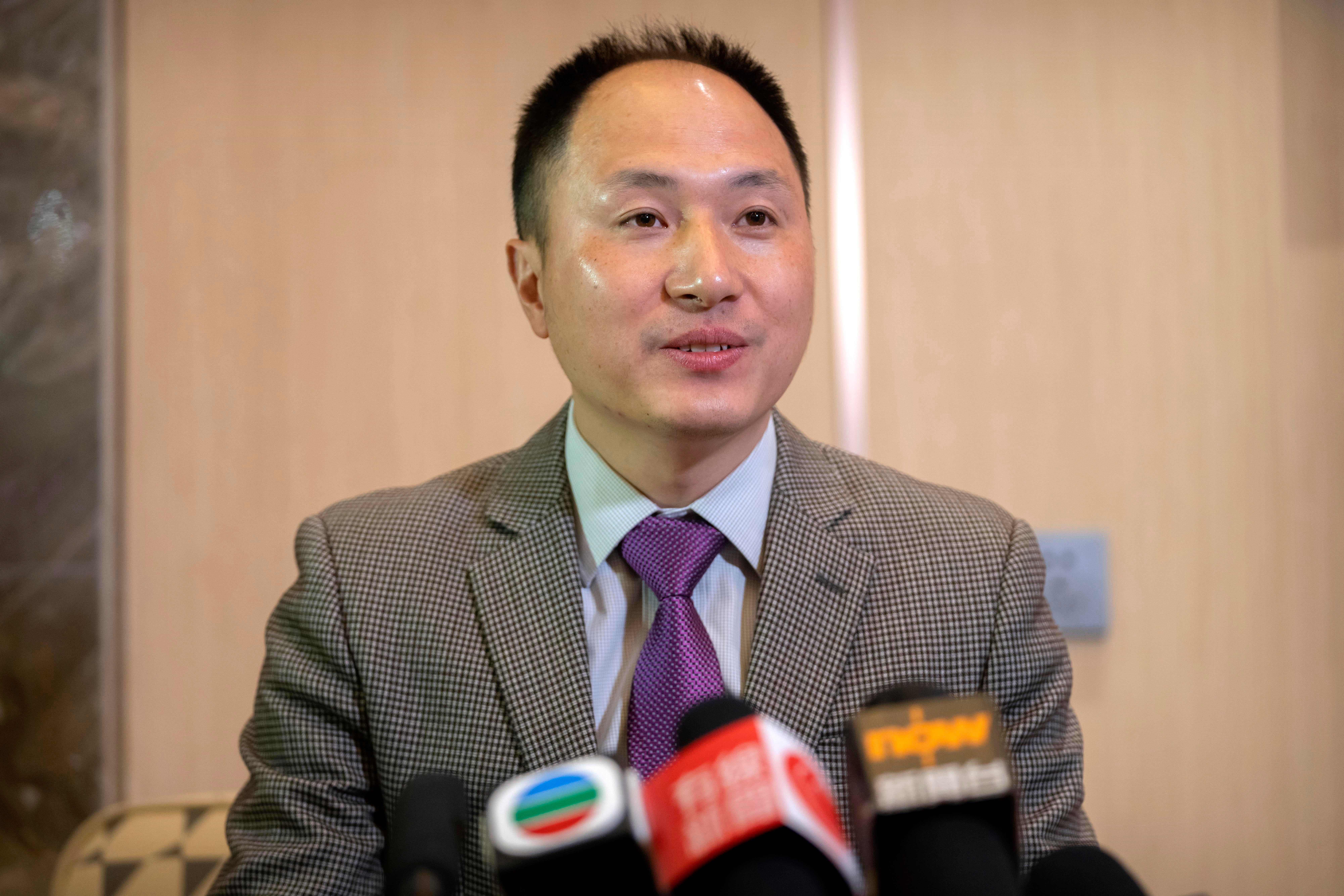Controversial Chinese scientist who altered babies’ genes now wants to cure Alzheimer’s disease
But ‘no human embryo will be implanted for pregnancy in this study’

The Chinese scientist who shocked the world in 2018 with the announcement of gene-edited babies, has now claimed that he has a similar solution for curing Alzheimer’s disease.
Last week, He Jiankui posted a new research proposal for modifying human embryos which he claims could help the “ageing population”.
He tweeted: “The ageing population is of grave importance as both a socioeconomic issue and a strain on the medical system… Currently, there is no effective drug for Alzheimer’s disease.”
He was sentenced to three years in prison in China in 2019 for “illegal medical practices” and emerged again last year after he was released from jail and announced that he was opening a laboratory in Beijing.
He sent shockwaves across the scientific community in 2019 when he announced that he had edited the genes of embryos of twin girls to make them resistant to HIV.
Meanwhile, his new proposal to cure Alzheimer’s disease has confused the scientific community. “The whole thing is, to put it bluntly, insane,” Peter Droge, an associate professor at the Nanyang Technological University in Singapore, told CNN.
He said the proposal was “highly questionable” and added that Mr He “basically wants to genetically modify the human species so they don’t get Alzheimer’s. I’m really surprised that he’s coming forward with this again”.
It remains unclear how the Chinese scientist aims to proceed with his experiment as he is serving a lifelong ban on working in reproductive technology.
His earlier work on gene-edited embryos was revealed only after the twin girls were born and was denounced for an irresponsible use of technology whose long-term effects remain poorly understood.
He said in a video at the time: “Right after sending her husband’s sperm into her egg, an embryologist also sent in CRISPR/Cas9 protein and instructions to perform a gene surgery intended to protect the girls from future HIV infection.”
Currently, there are no cures for Alzheimer’s disease even though millions of dollars worth of research is ongoing.
In the one-page proposal he tweeted, he, however, said that “no human embryo will be implanted for pregnancy in this study”.
“He very much wants to rehabilitate his reputation,” Kiran Musunuru, a professor of medicine at the University of Pennsylvania who is an expert in gene editing and has followed Mr He’s case closely, told NPR last month.
“There’s a reason why it’s so expensive to develop drugs and why it takes so long. Because you have to have a very, very, very high bar in terms of rigour. You got to make sure that this is safe, otherwise, you know, your patients are going to die when you give them a treatment that’s not well vetted.”
Earlier this year in March, more than 200 Chinese scholars condemned Mr He’s “attitude and refusal to reflect on his criminal actions of violating ethics and regulations of gene editing” in a statement.
Join our commenting forum
Join thought-provoking conversations, follow other Independent readers and see their replies
Comments


Bookmark popover
Removed from bookmarks